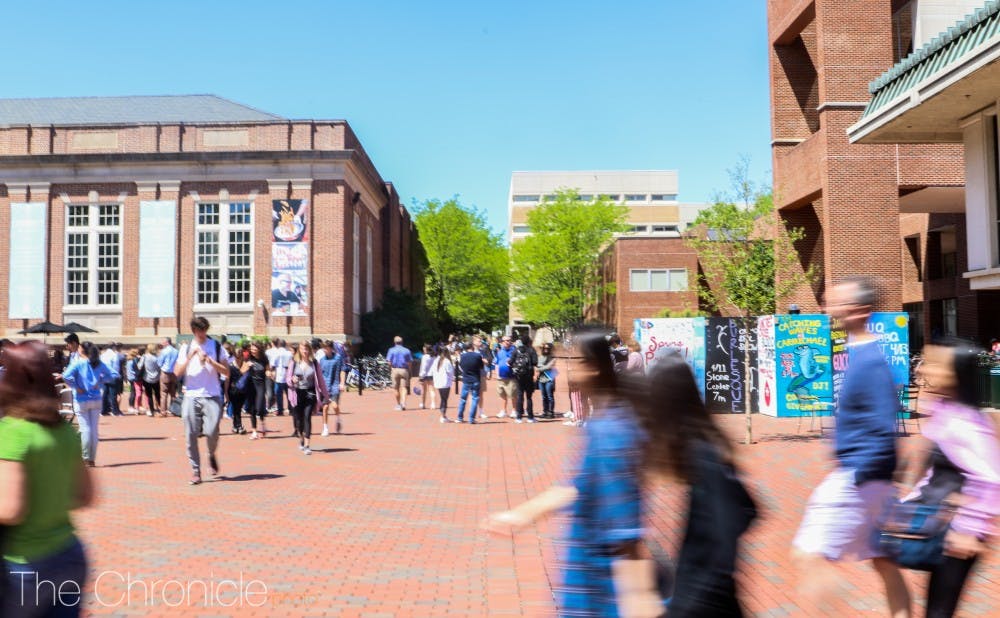The University of North Carolina-Chapel Hill resumed in-person classes on Monday amidst rising COVID-19 infections and questions over the school’s reopening policies.
As of Tuesday, 956 students and 179 employees have tested positive since Jan. 1, according to UNC’s COVID-19 dashboard. This number represents positive cases identified from on-campus testing sites and “all known positive cases reported to the university.”
Proof of a prior-to-arrival PCR test taken 72 hours before arrival on campus was required for unvaccinated students and students living in campus residence halls. This was recommended but not required for students living off campus. Students who tested positive were asked not to return for five days.
UNC has also “decided to limit campus testing for students and allow students who test positive for COVID-19 the option to isolate in their residence halls,” according to the Daily Tar Heel. The university is not providing separate campus housing or meal delivery for those who test positive, instead encouraging them to isolate at home.
On-campus asymptomatic testing through the Carolina Together Testing Program is now by appointment only, a decision made because “asymptomatic testing has limited utility given the short incubation period and high transmission rate for the Omicron variant,” according to a Dec. 31 email to students from UNC Chancellor Kevin Guskiewicz. Symptomatic testing is available at Campus Health Services.
At the same time, according to a brief obtained by NC Policy Watch, UNC epidemiologists project there could be 1,400 to 2,900 positive COVID-19 tests within the first 30 days of classes at the Chapel Hill campus. These estimates suggest 13,800 to 22,270 infections by mid-February.
The authors of the brief, UNC epidemiologists Jessie Edwards, Audrey Pettifor and Justin Lessler and Paul Delamater, an assistant professor of geography and fellow with the Carolina Population Center, stressed to NC Policy Watch that these were “rough estimates for planning purposes” and not formal forecasts. The brief does not mention how many students may become seriously ill or be hospitalized.
In an open letter from the UNC Residence Hall Association, the executive board condemned the university’s opening plans, calling them “extremely reckless and disheartening.”
“Not requiring each student to test before they come back into classrooms is setting us up for widespread outbreaks, where there will be unprecedented positivity levels across our community,” they wrote. “Additionally, the removal of quarantine and isolation spaces in residence halls means that students will have no choice but to be exposed to COVID-19, expose their roommate(s), or return home if they are able and potentially expose their families.”
While postdoctoral scholars and graduate students are included in the federal employee vaccine requirement, undergraduates at UNC are not required to be vaccinated or receive the booster. Even so, 94% of students, 93% of faculty and 88% of staff have self-reported as being vaccinated.
Get The Chronicle straight to your inbox
Sign up for our weekly newsletter. Cancel at any time.

Preetha Ramachandran is a Trinity senior and diversity, equity and inclusion coordinator for The Chronicle's 118th volume. She was previously senior editor for Volume 117.

